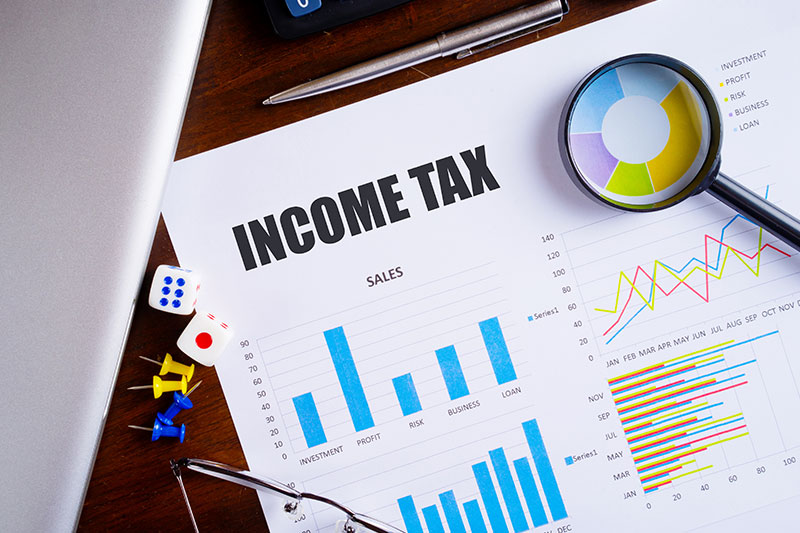6 MinsMay 4, 2022
In Budget 2020, the government introduced the New Tax Regime, making it easier to file Income Tax Returns (ITR). However, the Old Tax Regime was also retained, giving taxpayers the option to choose between the two tax regimes the old and the new.
Read on to know which one you should for and why.

Old Tax Regime:
Under the Old Tax Regime the income tax rate varies based on the income slab as well as your income.
Income tax rates:
Below 60 years
| Income slabs (Rs) | Tax Rate |
|---|
| Up to 2.5 lakh | Nil |
| 2.5-5 lakh | 5% (Tax Rebate available u/s. 87A) |
| 5-7.5 lakh | 20% |
| 7.5-10 lakh | 20% |
| 10-12.5 lakh | 30% |
| 12.5-15 lakh | 30% |
| Above 15 lakh | 30% |
Senior Citizens (age: 60 to 79 years)
| Income slabs (Rs) | Tax Rate |
|---|
| Up to 3 lakh | Nil |
| 3-5 lakh | 5% (Tax rebate available u/s. 87A) |
| 5-10 lakh | 20% |
| Above 10 lakh | 30% |
Super Senior Citizens (age 80 and above)
| Income slabs (Rs) | Tax Rate |
|---|
| Up to 5 lakh | Nil |
| 5-10 lakh | 20% |
| Above 10 lakh | 30% |
Note: The above rates are subject to surcharge and cess, as applicable.
The Old Tax Regime allows the assesse to avail tax exemptions and deductions, across age groups and income segments. So, typically if you invest in tax-saving investment avenues, have a home
loan or education
loan to repay, have made donations, etc, you can avail of these deductions under Section 80C, 80E, Section 80G, Section 24(b) among a host of other provisions of the Income Tax Act. Further a salaried individual can also avail exemptions/deductions
such as Leave Travel Allowance (LTA), House Rent Allowance (HRA), Standard Deduction in the Old Tax Regime
Also Read: [Start
your tax planning exercise now]
In other words, the Old Tax Regime helps you get two birds with one stone: 1) optimal tax-saving and 2) wealth creation.
Moreover, for senior citizens (age 60 years and above but up to 79 years) and super citizens (80 years and above), under the Old Tax Regime, there is a separate tax slab with a high base exemption limit. In the case of certain individuals, this
may leave a higher disposable income supporting to handle expenses during the golden years of life.
New Tax Regime
Under the New Tax Regime, on the other hand, the rates are low and go up progressively as per your income-tax slab. However, it is important to keep in mind that the New Tax Regime is devoid of certain exemptions and deductions.
Income-tax rates
| Income slabs (Rs) | Tax Rate |
|---|
| Up to 2.5 lakh | Nil |
| 2.5-5 lakh | 5% (Tax rebate available u/s. 87A) |
| 5-7.5 lakh | 10% |
| 7.5-10 lakh | 15% |
| 10-12.5 lakh | 20% |
| 12.5-15 lakh | 25% |
| Above 15 lakh | 30% |
Note: The above rates are subject to surcharge and cess, as applicable.
No exemption or deduction allowed
(Source: indiabudget.gov.in)
The New Tax Regime allows very few exemptions. Some of these are the employers’ contribution to NPS under Section 80 CCD(2) and the deduction towards the ‘travel & conveyance allowance’ for official tours, incurred for official
duties, and in connection with a transfer to another location.
Moreover, under the New Tax Regime the tax rates are applicable to taxpayers irrespective of their age.
Which Tax Regime should you go for?
The New Tax Regime aims to provide relief to taxpayers, but that would entirely depend on a case-to-case basis.
- If you are less than 60 years of age with a Gross Total Income of say, Rs 15 lakh or more, and mainly earning ‘Income from Salary’; it makes sense to opt for the Old Tax Regime, wherein you would be able to avail of the respective
exemptions and deductions under the Income Tax Act.
- Whereas, if you are a non-senior citizen earning a gross income of say Rs 5-6 lakh, then the New Tax Regime may prove advantageous.
- Likewise, if you are in the low-income group, the New Tax Regime would be advantageous. Also, when you are unable to use the exemptions and deductions for some reason, then maybe the New Tax Regime could make sense.
- Similarly, in the case of senior citizens and super-senior citizens, even if your Gross Total Income is, say, Rs 15 lakh, the New Tax Regime is a meaningful choice even though it is devoid of exemptions and deductions.
Choose the regime that is beneficial for you. Sensibly evaluate your options and make the best choice between the Old
and the New Tax Regime so that it boosts your disposable income and purchasing power.
Disclaimer: This article has been authored by PersonalFN, a Mumbai based Financial
Planning and Mutual Fund research firm. Axis Bank doesn't influence any views of the author in any way.
Axis Bank & PersonalFN shall not be responsible for any direct / indirect loss or liability incurred
by the reader for taking any financial decisions based on the contents and information. Please consult
your financial advisor before making any financial decision












